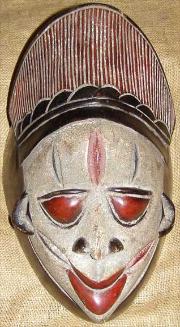On my way to the office penultimate Friday, I bumped, at the newsstand, into an entertainment newspaper which reported that my musician namesake, Innocent Idibia (a.k.a. Tuface, TuBaba or Father of all nations), is ruing that he had never been fortunate enough to deflower a girl in his life.
When I walked past the newsstand and made to ascend the pedestrian bridge, I got wondering why my namesake, who (in)famous for his sexcapades, should bother his head about virgins. Well, if he has been fantasising over tearing the hymen, let me inform him that some guys, on the other hand, loathe tearing the ‘super sack’.
Like my namesake, I don’t know what it feels like ‘having’ a virgin. Is it because I am one? I can hear some of my naughty friends say: see who is talking. But I am a virgin. If in doubt, ask my former executive editor (not in Independent Newspapers Limited) who told me that “men are evergreen virgins”. Or how would you prove, beyond reasonable doubts, that a man had tested the forbidden fruit? For a lady, I was told, you need just to try inserting fresh whole egg through her vagina; if it enters, know that the hymen had been torn (meaning she is technically not a virgin), but if it is difficult to enter, she is still a virgin, technically.
Is the above criterion good enough for the virginity test? My answer is a capital ‘no’, as I was also told that some girls can feign virginity. They just need to use some concoction to wash the honey pot and abstain from sex for about three weeks. After the therapy, the next intercourse would be painful and ‘bloody’. Again, even some girls, who are technically virgins, may have had their hymens torn one way or another, especially through sporting activities.
Now, who is actually a virgin?
According to Wikipedia, a virgin (or maiden) originally meant a woman who has never had sexual intercourse. Virginity is the state of being a virgin. It is derived from the Latin virgo, which means “sexually inexperienced woman”. As in Latin, the English word is also often used with wider reference, by relaxing the age, gender or sexual criteria. Hence, more mature women can be virgins, men can be virgins. In the latter usage, virgin simply means uninitiated.
By extension from its primary sense, the idea that a virgin has a sexual “blank slate”, unchanged by any past intimate connection or experience, leads to the abstraction of unadulterated purity.
Females of various species, by analogy with Homo sapiens, if they have never mated, can also be called virgins.
The loss of virginity may call to mind the end of innocence, and the beginning of sexual maturity.
Chastity does not imply virginity. Chastity derives from the Latin castitas, meaning “cleanliness” or “purity” – and does not necessarily mean the renunciation of all sexual relations, but rather the temperate sexual behaviour of legitimately married spouses, for the purpose of procreation, or the sexual continence of the unmarried.
The word virgin comes via Old French virgine from the root form of Latin virgo, genitive virgin-is, meaning literally “maiden” or “virgin” – a sexually-intact young woman.
Perceived value and ‘technical virginity’
Female virginity is closely interwoven with personal or even family honour in many cultures, especially those known as shame societies, in which the loss of virginity before marriage is a matter of deep shame. For example, among the Bantu of South Africa, virginity testing or even the suturing of the labia majora (called infibulation) has been commonplace. Traditionally, Kenuzi girls (of the Sudan) are married before puberty by adult men who inspect them manually for virginity. Female circumcision is later performed at puberty to ensure chastity.
History evidences laws and customs that required a man who seduced or raped a virgin to take responsibility for the consequences of his offence by marrying the girl or by paying compensation to her father on her behalf. In some countries, until the late 20th century, if a man did not marry a woman whose virginity he had taken, the woman was allowed to sue the man for money, in some languages named “wreath money”.
Emphasising the monetary value of female virginity, some women have offered their virginity for sale. In 2004, a lesbian student from the University of Bristol was said to have sold her virginity online for £8,400, and Londoner Rosie Reid, 18, reportedly slept with a 44-year-old BT engineer in a Euston hotel room against payment for her virginity. In 2008, Italian model, Raffaella Fico, then 20 years old, offered her virginity for €1 million. In that same year, an American using the pseudonym Natalie Dylan announced she would accept bids for her virginity through a Nevada brothel’s website.
Some historians and anthropologists note that many societies, before the sexual revolution, that place a high value on virginity before marriage actually have a large amount of pre-marital sexual activity that does not involve vaginal penetration: for example, oral sex, anal sex and mutual masturbation. This is considered “technical” virginity, as vaginal intercourse has not occurred, but the participants are sexually active. Since the early 1990s, the concept of “technical” virginity has been popular among U.S. teenagers. In 1999, a study published in the Journal of the American Medical Association, which examines the definition of sex based on a 1991 random sample of 599 college students from 29 U.S. states, found that 60 per cent said oral-genital contact did not constitute having sex.
“That’s the ‘technical virginity’ thing that’s going on,” said Stephanie Sanders, associate director of the Kinsey Institute for Research in Sex, Gender and Reproduction at Indiana University.
Sanders, as the co-author of the study, and along with other researchers, titled the findings “Would You Say You ‘Had Sex’ If …?” According to a study published in 2001 in The Journal of Sex Research, over half of respondents considered that virginity could only be lost through having consensual sex.
In the olden days, when a new wife was married in Igboland, South East of Nigeria, the first intercourse was monitored; the groom would be given a white cloth to spread on the bed for the first act. Blood stains are expected on the cloth after the intercourse, which was celebrated. But in a case where there was no stain, the maiden would be assumed to be ‘spoilt’ and would not be respected. That was the premium paid to virginity then.
But now, who still needs a virgin?
A Lagos-based non-governmental group, Mine Teenage Ministry, recently launched a campaign to restore the glory of virginity. That got me wondering whether the stress was worth it, considering the little or no premium paid to virginity today. In fact, these days, a lady who keeps her virginity through university is considered a “bush girl”, as everybody seems to be doing it. A friend once told me that she gave her virginity to her boyfriend in the university because cult guys were threatening to rape her.
According to Mine Teenage Ministry, “virginity is the glory of the youth”. It continued that “about 8,000 girls lose their virginity daily in the United States. Can you imagine what the number would be in Nigeria? Virgins are being victimised…virgins are now made to feel like outcasts…”
It therefore called on youths to join the campaign “to restore the glory of virginity” by advocating sexual purity.
“Those who are virgins should be glad to remain so until marriage, and those who had made mistakes should decide to remain sexually pure again,” the group advised.
Recently, a female friend asked me whether I would like to marry a virgin. My answer was that “if God gives me a virgin, I would appreciate it; but if otherwise, no qualms” because I pay little premium to the phenomenon. May be because I don’t know what it feels like tearing the hymen. However, I still feel that it is a wonderful experience because some people would prefer to die for their faith, for them to “go to paradise and get seven virgins”. This means having a virgin is worth dying for.



















